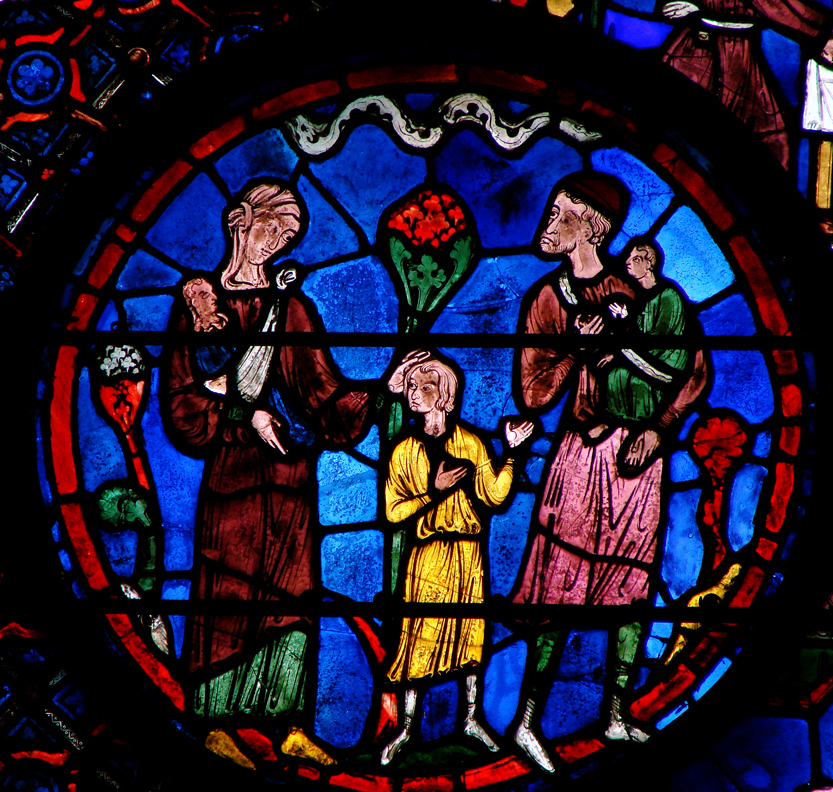
Family
Cathédrale de Chartres
My dear friends,
In Mark 10:2-12, the Pharisees approach Jesus with a question, asking if it was lawful for a man to divorce his wife. Jesus replies, "Because of your hardness of heart he (Moses) wrote this commandment for you."
In the Old Testament, divorce was regulated by Jewish law, and Moses provided a provision for divorce through the writing of a certificate of dismissal. This was intended to protect the rights and dignity of women, as divorce in that time often left women vulnerable and marginalized.
Jesus then takes the conversation beyond the legalistic framework and points to the divine intention behind marriage:
'God made them male and female.' (*)
'For this reason a man shall leave
his father and mother
and be joined to his wife,
and the two shall become one flesh.' (*)
So they are no longer two, but one flesh.
Therefore what God has joined together,
let no one separate."
- Mark 10:6-9
In this passage, Jesus unveils the spiritual significance of marriage. He highlights the profound union between a man and a woman, emphasizing that they become one flesh. It is through this unity that they are able to grow and learn together, nurturing their characters and spiritual development. In the words of Martin Luther, marriage becomes a "school for character," providing a space where individuals can learn valuable lessons in love, compassion, and selflessness.
We must also recognize the evolving understanding within many Christian churches today: Just as Martin Luther acknowledged the transformative potential of marriage for heterosexual couples, there is an increasing recognition that same-sex unions can also embody those same characteristics and be capable of receiving God's blessings.
Many Christian denominations have come to understand that the fundamental aspects of love, commitment, and spiritual growth are not exclusive to heterosexual relationships. They recognize the inherent worth and dignity of all individuals, irrespective of their sexual orientation, and affirm the capacity for same-sex couples to experience the sacredness of marriage.
This evolving understanding reflects an inclusive and compassionate approach, rooted in the teachings of Jesus, that seeks to honor the diversity of human experiences and relationships. It is a reflection of the timeless truth that love knows no boundaries and that the essence of spirituality lies in fostering deep connections and nurturing the highest qualities of the human spirit.
Therefore, let us embrace the profound teachings of Jesus in this passage. Let us honor the sanctity of marriage as a transformative journey, a school for character, where individuals can learn and grow together. Let us also extend our understanding and compassion to encompass the sacred bonds shared by same-sex couples, recognizing their capacity to embody the qualities of love and commitment.
May we strive to cultivate deep respect and love for all beings, regardless of their gender or sexual orientation. Let us support and celebrate the unions that bring joy, harmony, and spiritual growth to the lives of individuals, for what God has joined together, no one should seek to separate.
May the light of wisdom guide us on this path of understanding, and may the compassionate love of the divine shine upon all of humanity.